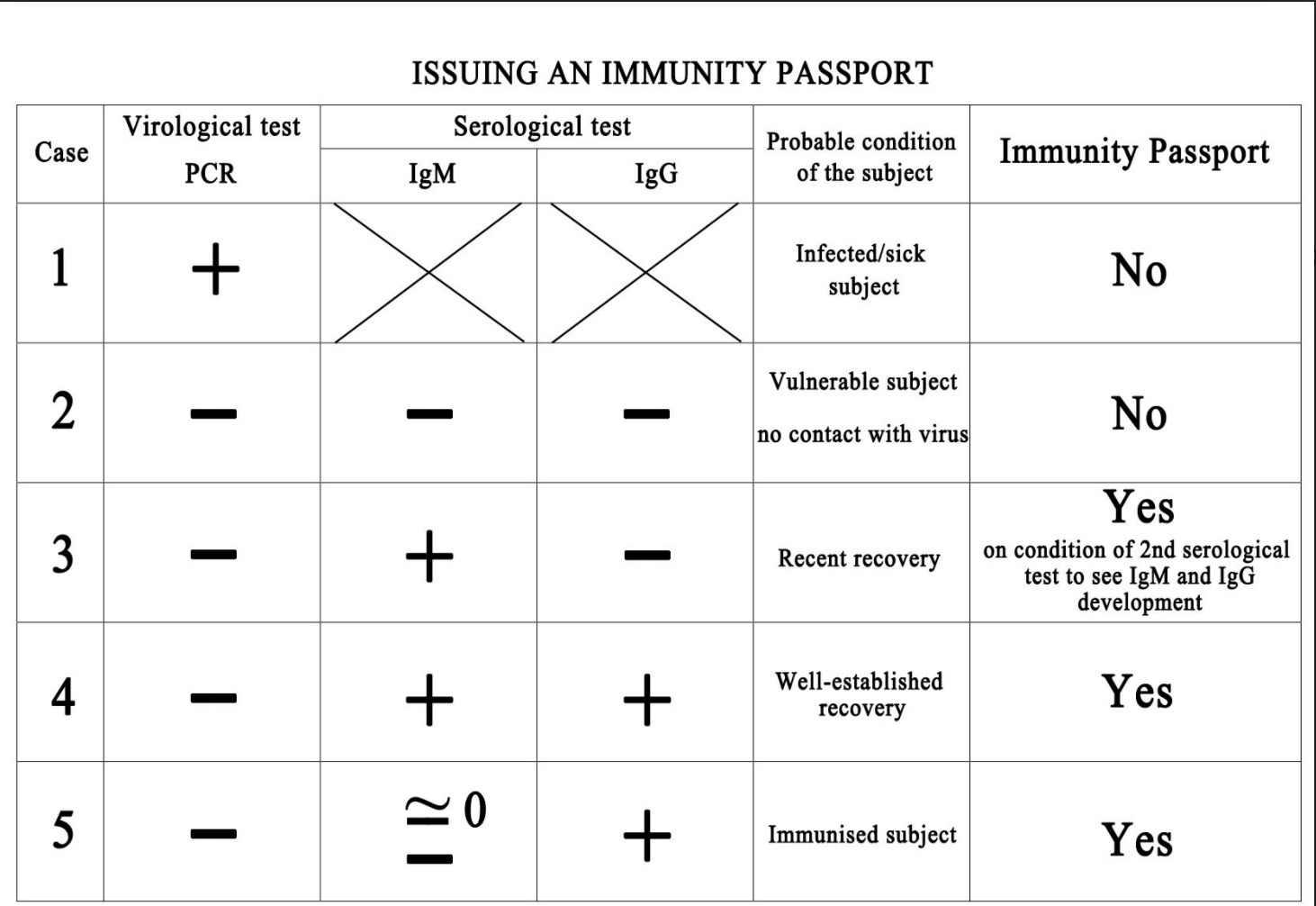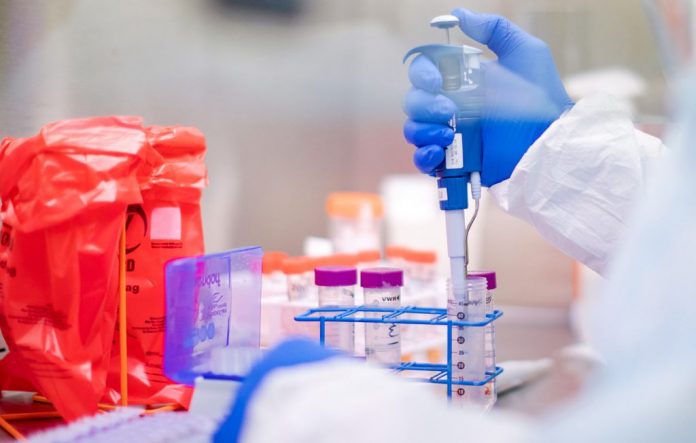After publication of my article “International Immunity Passports Can Help Restore Freedom of Movement” in The Geopolitics on 8 April, some reactions have questioned the feasibility of these passports on the basis of the reliability of the serological tests.
For example, on April 12, the French newspaper Le Figaro published an article possibly reflecting the views of many who argued that the tests for such ‘Immunity Passports’ are of variable reliability.
The article uses the example of a population of a million people which, in the current phase of the COVID-19 pandemic, has been moderately touched by coronavirus with an immunisation rate of 10%, or 100,000 people. But for the other 900,000 who are still vulnerable to the illness, a serological test with 95% reliability would identify – with a margin of error of 5% — a group of 45,000 people who are not in fact immunised to who an “Immunity Passport” would wrongly be given. These people could get infected and become contagious having left confinement. So Le Figaro concludes that the Immunity Passport risks being “not just ineffective, but even dangerous.”
On such an argument, no-one could ever reasonably leave confinement. If the population of a million people was 50% immunised in the later stages of the pandemic – in other words that the threshold of “collective immunisation” had been reached – the same danger would remain. It would still be dangerous to release 25,000 non-immunised people using the same margin of error of 5% in the serological tests with the population divided between 500,000 immunised and 500,000 non-immunised people.
It’s relatively easy to resolve the problem raised by Le Figaro. As I wrote in The Geopolitics, an immediate solution is for health authorities to establish “a protocol allowing for two serological tests to be carried out at intervals to confirm that immunity exists and that it can be relied on for an acceptable and workable period”. With the application of two consecutive serological tests on the same person, the margin of error would be mathematically reduced from 5% to the much more acceptable level of 0.25%.
To further improve the reliability of the Immunity Passport, I suggest a protocol for their delivery combining a polymerase chain reaction (PCR) test, already widely used to detect coronavirus by taking a sample from the nose or throat, with a serological test to detect antibodies in the blood following a coronavirus infection (see table).
The first stage consists of carrying out a virological PCR test on the passport candidate. There are two possibilities:
– The test is positive (case 1), showing that the person is infected/sick and a passport is refused without the need for a serological test;
– The test is negative (cases 2 to 5), and examination of the person continues with a recommendation for a serological test to detect antibodies. Simplistically put, there are two kinds of these: IgMs which show an infection which is recent or continuing, and IgGs which show an old infection and present immunity to the illness in question.
There are several possible cases for the second stage:
– Case 2: The IgM and IgG antibodies are both negative: the person has not been in contact with coronavirus, which remains unknown to their immune system. The person remains vulnerable, and can at any time become infected and contagious. The Immunity Passport is therefore refused.
– Case 3: The IgM antibody is positive but the IgG antibody is negative: the person has recently been infected, and may still be, but their immune system has reacted more or less successfully, leading to the start of a recovery which remains to be confirmed. The Immunity Passport can only be granted after a second serological test to measure the development of the presence and quantity of IgM and IgG antibodies.
– Case 4: The two antibodies IgM and IgG are positive, showing an established recovery. The Immunity Passport can be granted.
– Case 5: The IgM antibody can disappear or only remain in very small quantities after several weeks or months, but the IgG antibody remains present possibly in higher quantities, which means that the subject has acquired immunity. The Immunity Passport can be granted.
Many unknown factors and questions remain as we confront COVID-19. These notably concern the reliability of the diagnostic tests for coronavirus as well as the nature, intensity and duration of immune system responses to infection. The search for a vaccination and for a treatment against coronavirus is also full of uncertainty but also hope. There are reasons to hope that we will be able to quickly see further and more clearly.
Le Figaro last week cited the head of INSERM, a leading French research institute, who said that she had never seen clinical research advancing so quickly as for COVID-19. The same is certainly true for tests to detect the virus and to measure immunological responses. Each day there are announcements that research centres, laboratories and pharmaceutical companies all over the world have developed new, ever more reliable and effective tests. They are receiving increasingly huge orders from national authorities who are preparing to release their populations from confinement.
One advantage of my proposal is that it would allow countless individuals and professionals from all sectors to be immediately released from confinement without risk before the end of general confinement, as I argued in The Geopolitics on March 27: “How to Prevent COVID-19 from Paralysing the World’s Economy”. I hope that my proposal for an Immunity Passport will help the authorities to improve their strategy to end the current paralysing and costly indiscriminate general confinement imposed regardless of immunological status.
The views and opinions expressed in this article are those of the author.

Sam Rainsy, Cambodia’s finance minister from 1993 to 1994, is the co-founder and acting leader of the opposition Cambodia National Rescue Party (CNRP).


